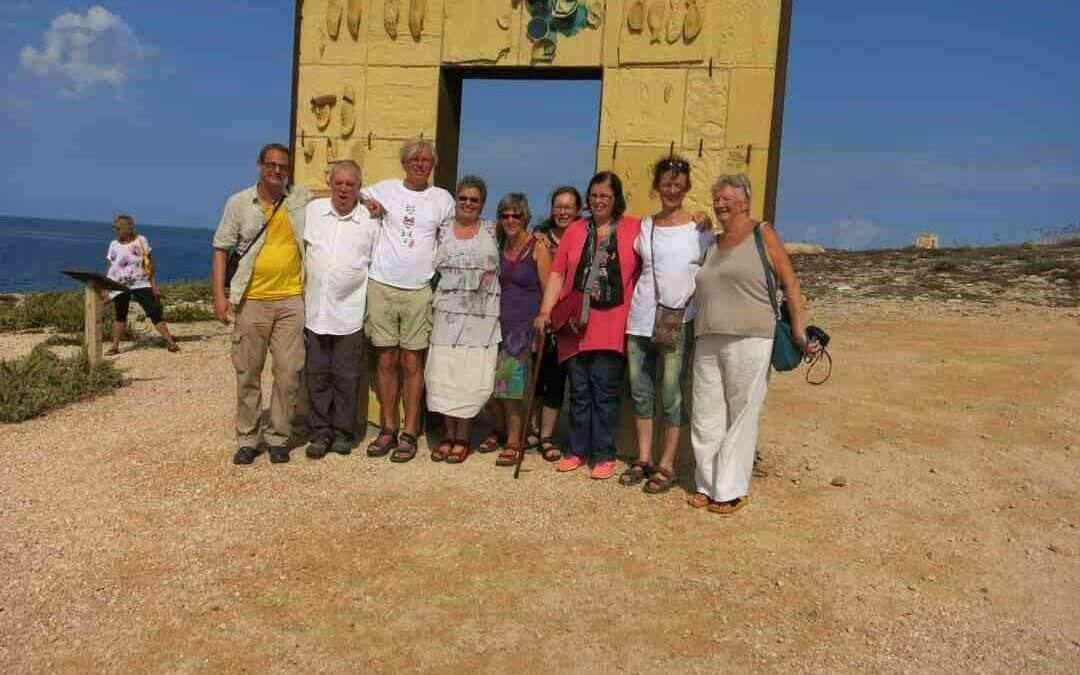A déjà vu: In 2013, there were also about 500 refugees who capsized within sight of the Italian Coast Guard near the island of Lampedusa, in a completely overcrowded boat and drowned miserably, arms stretched high in the air above water. Paintings, photographs, and stories circulated about those arms, forearms, and hands in the pale light of dawn. Some, not just the babies and children, had clung to the body of their sinking „neighbor,“ pulling him down like this. „Voices as of screaming kittens“ he had heard at one time and could not explain it. Until he saw the hands and arms. Many. How quickly do you go under when you can’t swim? Exhausted?
Pasquale had stayed out all night, people had been celebrating…, two friends of his were there. He immediately called the coast guard and screamed for help. I’m not sure anymore if anyone came to help that morning. For years afterward, there was excited discussion about this sin of omission, for which evidence was sought.
Lampedusa had – still? – the reputation of being traditionally open to sea turtles and guests, passers-by, and refugees from Africa. Geologically, too, the island tended to belong to Africa.
The bodies of those rescued, who were able to catch, and grab the ring, were slippery from the oily fuel that had caught fire. This happens not infrequently, just as the wounds are numerous and painful from the corrosive mixture of fuel oil and salt water. The fisherman and his guests worked tirelessly to pull the bodies over the side of the ship with all their might. Almost a year later, in September 2014, when we „pilgrimaged“ twelve people from four European countries to Lampedusa, he would tell us how everything had been for him, that morning, and how it went on afterward. This action changed him forever, he shared it with us. He had received cards, he said, from rescued young African men, postmarked in Germany, Sweden, Norway…in which he was addressed as „Papa.“ Pasquale wept quietly on the emptying terrace of the ice cream parlor where we had gathered. Under a nearby deep black blue sky. At 10 p.m., he had said, when there wouldn’t be so much going on.
How many could be saved? I don’t remember. Why do I think of the number 53? Maybe all together, because another fisherman had also saved people from dying at sea.
Pasquale was summoned to a court hearing, I found out three years later when I revisited the island with Romeo Poltronieri. He was fined, if I remember correctly, and was bitter about it. At the ceremony our group held mid-week in 2014, in Pasquale’s boat, we had ourselves driven to the very spot where the people from Africa, most of whom had already made such miserable escapes, drowned. Pasquale turned off the engine. Outside and inside it became silent. Ruud Banders improvised on his Shakuhachi flute. Afterward, each of us thirteen present was invited to share what particularly moved him or her. Pasquale shared with us that he and all fishermen had sworn to save people in distress at sea. This old law no longer applied. He seemed bitter. Ruud translated most of the time, but often Frank de Waele or I did, the three of us understand and speak Italian. Svenja Hollweg had made flower arrangements, which each of us handed over to the water with silent or loudly spoken words. They danced on the waves and disappeared in the water’s valleys. Whoever wanted to could now intonate a prayer in their own language. Someone suggested „Our Father“. Pasquale said it in Italian, crying. I think everyone was crying. Our Sicilian friend said this was the first time in decades to say this prayer.
I would see Pasquale two more times: In Hanover and in Lampedusa.
Ten years later: on the news I see people in the evening, under black-dark skies, in the crowded streets of Athens, demonstrating loudly against their country’s government policies. On placards, you see the word: “Killer!”
The journalist and book author Ronen Steinke wrote in the Süddeutsche Zeitung, a few days ago: “This shipwreck is not an accident, but an injustice.”
https://www.sueddeutsche.de/kultur/gefluechtete-menschen-seenotrettung-eu-1.5947164?reduced=true

